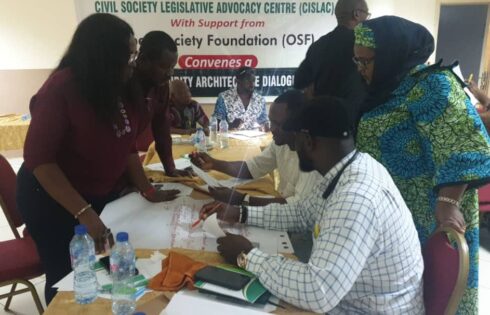
Early Warning System Vital in Securing Communities – Experts
Security generally is a fundamental pre-occupation of every individual, group, community, organisation and state.
Human security is paramount to protect the vital core of all human lives in ways that enhance human freedoms and human fulfilment.
A group of experts made this known at a one-day capacity building for community observers and response networks in Enugu State.
Organised by the Civil Society Legislative Advocacy Centre ( CISLAC)/IT-Nigeria with support from Open Society Foundation Africa ( OSF-Africa), the dialogue is aimed at strengthening local participation and expand community-based early warning and early response network and system.
The experts observed that Community Early Warning and Early Response system provides support to existing organizations and individuals by advancing peace, building capacity of community members to minimise tensions, preventing violence before it starts and minimising the effect of conflict on civilians.

“Efficient workability of Community Early Warning and Early Response systems is usually hampered by poor resourcing of human expertise and material, unclear and inaccurate information, lack of communication technology, political interference and gender bias.
“Community Early Warning and Early Response Systems are necessitated by the need for community to work together as a team to take actions that can help reduce harm or loss from a threat.
“Early Warning and Early Response Systems remain an important tool within the spectrum of actions for the prevention, management and mitigation of conflicts, crimes and hazards.
According to the experts, it is necessary to build a Community-Early Warning Early Response System that enhances human security through timely detection and response to situations that could lead to violent conflicts and serious crimes.

“Developing a strong analytical skill to assess situations rationally, create effective plans and overcome obstacles is a must.
“There is a pressing need to develop a pre-established channel of communication in the community to provide a smooth, reliable and streamlined path of communication that flows across warners, responders and policy makers.
“Equally, observing a thorough Steps-by-Step approach to Early Response through conflict identification, information gathering and analysis, planned intervention, intervention facilitation and proper follow-up actions should be done religiously.
“Also vital is gender mainstreaming for inclusive participation and information provision that enhance efficient functionality of Community response systems,” the experts said.
